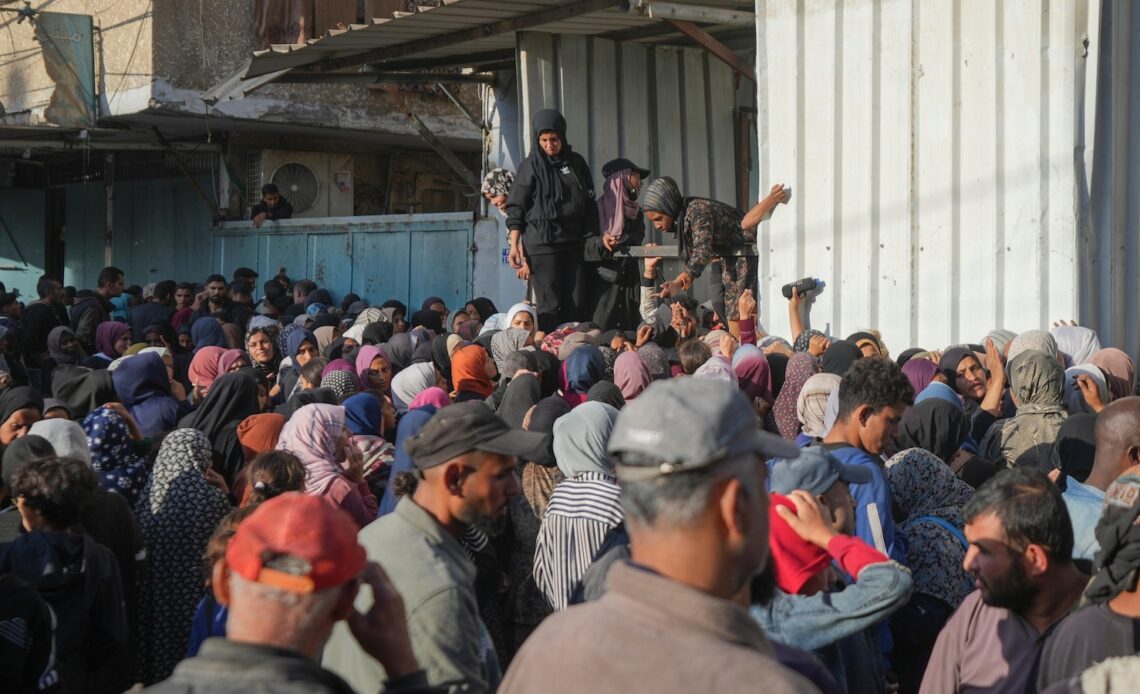DEIR AL-BALAH, The Gaza Strip — Yasmin Eid coughs and covers her face, cooking a small pot of lentils over a fire fed with twigs and scrap paper in the tent she shares with her husband and four young daughters in the Gaza Strip.
It was their only meal Wednesday — it was all they could afford.
“My girls suck on their thumbs because of how hungry they are, and I pat their backs until they sleep,” she said.
After being displaced five times, the Eids reside in central Gaza, where aid groups have relatively more access than in the north, which has been largely isolated and heavily destroyed since Israel began waging a renewed offensive against the militant group Hamas in early October. But nearly everyone in Gaza is going hungry these days. In the north experts say a full-blown famine may be underway.
On Thursday, the International Criminal Court issued arrest warrants against Israeli Prime Minister Benjamin Netanyahu and his former defense minister, accusing them of using “starvation as a method of warfare” — charges Israel adamantly denies.
In Deir al-Balah, the Eids are among hundreds of thousands sheltering in squalid tent camps. The local bakeries shut down for five days this week. The price of a bag of bread climbed above $13 by Wednesday, as bread and flour vanished from shelves before more supplies arrived.
The United Nations humanitarian office warned of a “stark increase” in the number of households experiencing severe hunger in central and southern Gaza. It appeared to be linked to the robbery at gunpoint of nearly 100 aid trucks last weekend in southern Gaza, close to Israeli military positions. Israel blamed Hamas but appears to have taken no action to stop the looting, while Hamas said it was the work of local bandits.
Aid groups say the looting is one of many obstacles to getting food and other vital aid to the territory’s 2.3 million Palestinians. They also have to contend with Israeli movement restrictions, ongoing fighting, and heavy damage wreaked by the Israeli bombardment of roads and critical infrastructure.
For months, Yasmin and her family have gone to bed hungry.
“Everything has increased in price, and we cannot buy anything,” she said. “We always go to sleep without having dinner.”
She misses coffee, but a single packet of Nescafe goes for around $1.30. A kilogram (2 pounds) of onions goes for $10, a medium bottle of cooking oil for $15 — if available. Meat and chicken all but vanished from the markets months ago,…
Click Here to Read the Full Original Article at ABC News: Health…

